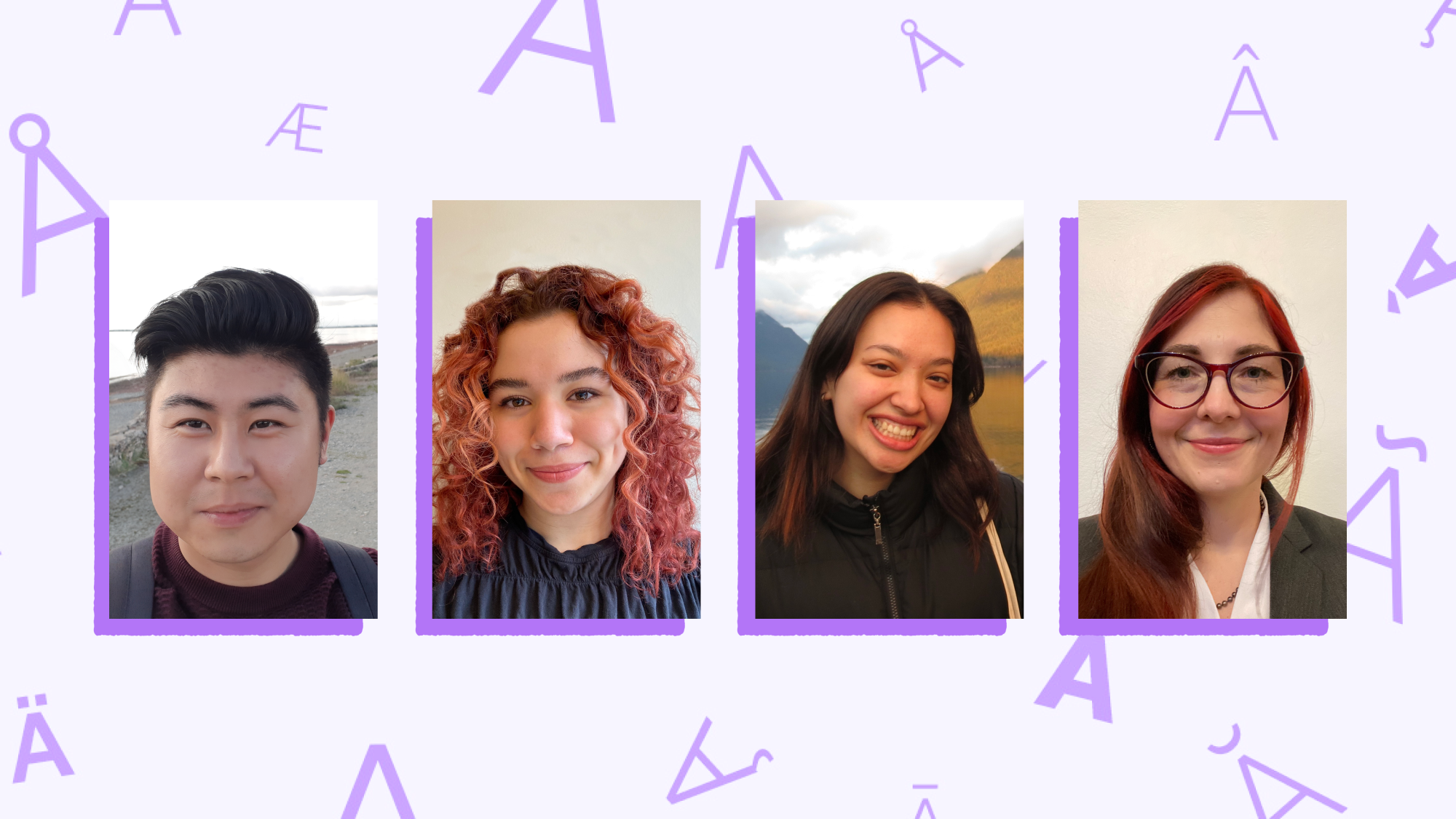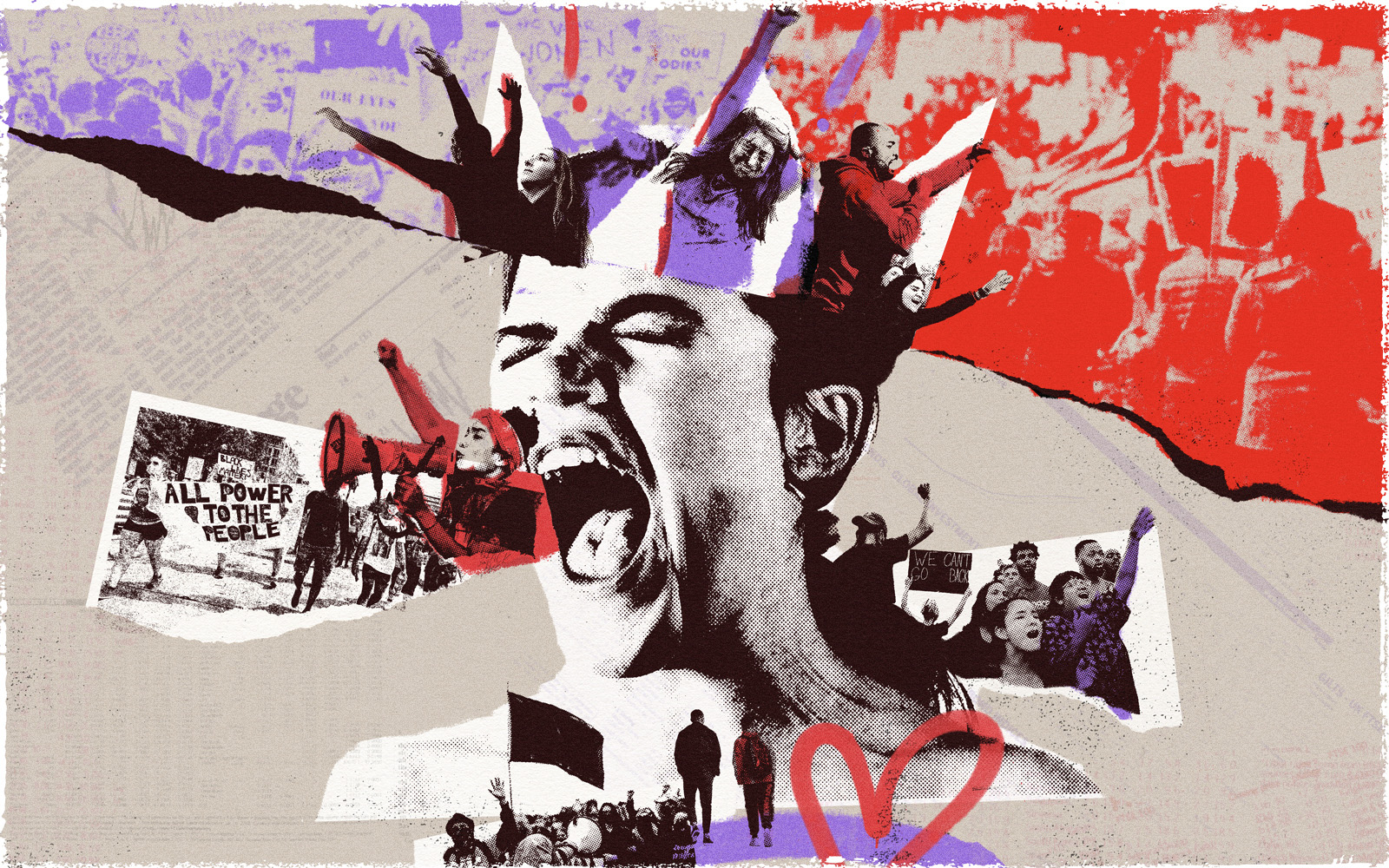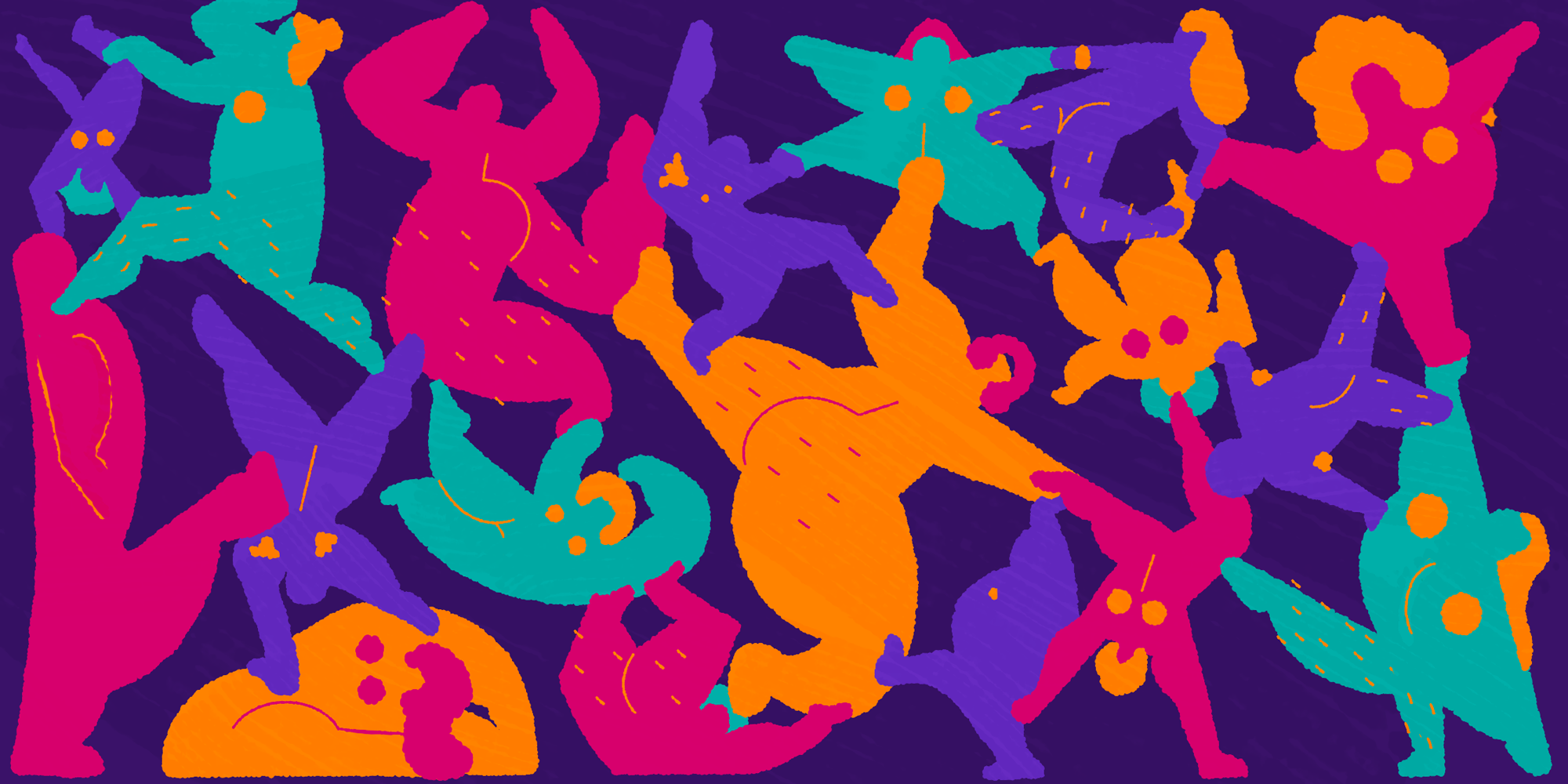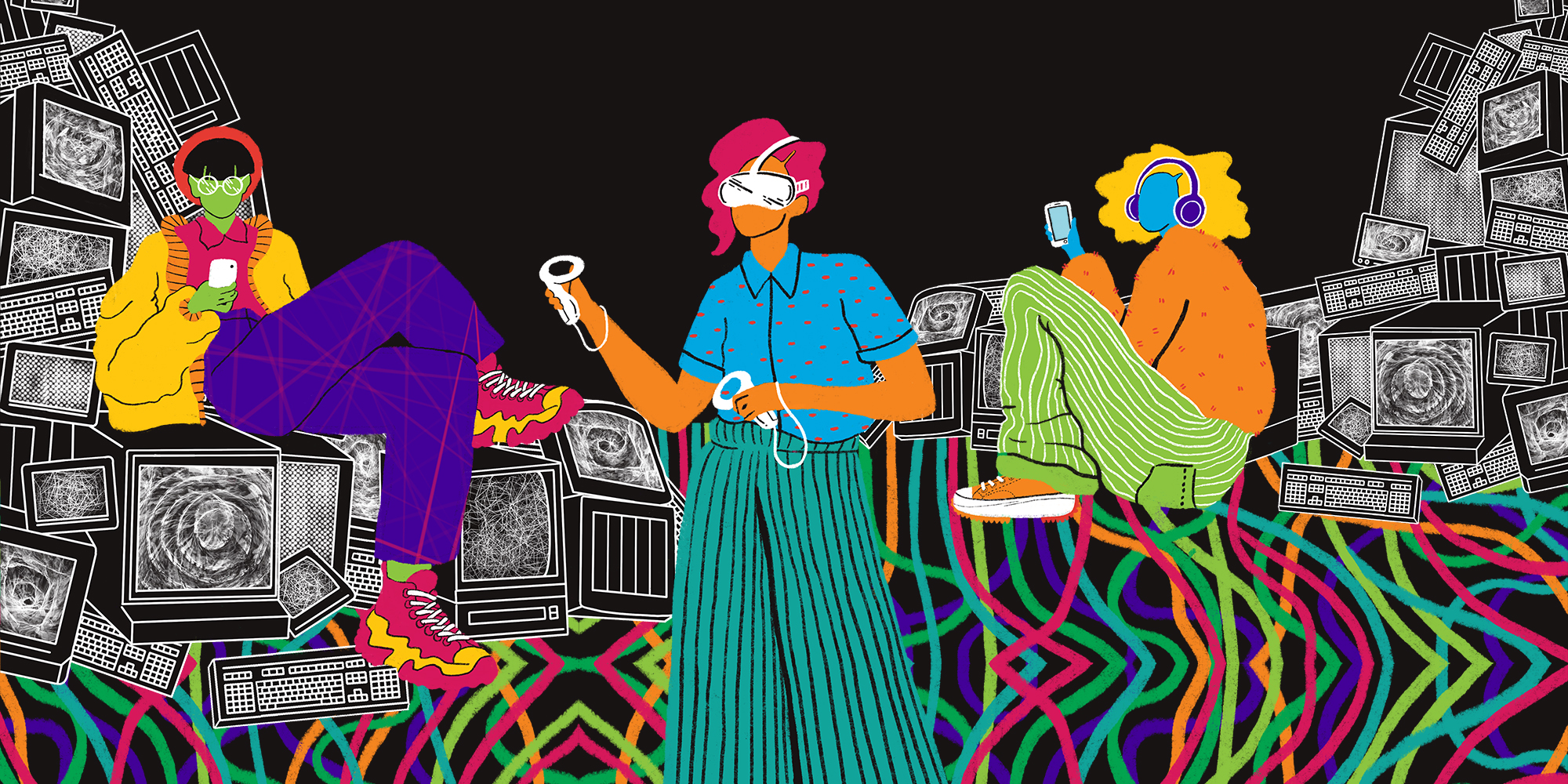

Language students David Chen, Olivia Crozier, and Bella Penninger alongside faculty organizer, Dr. Biz Nijdam.
This Spring, Arts Multilingual Week invites you to celebrate multilingualism through a series of events, performances, and showcases featuring students, scholars, and community members.
We sat down with faculty organizer Dr. Biz Nijdam, along with language students Olivia Crozier, Bella Penninger, and David Chen, as they shared their perspectives, insights, and experiences on what Arts Multilingual Week has to offer, along with its most anticipated events!
What is Arts Multilingual Week celebrating?
Olivia: Every day, our student body engages with over 60 different languages and participates in a wide range of language, culture, and literature programs. Multilingual Week encourages students to aspire to be more than just language learners, but to appreciate linguistic diversity, and collectively resist linguaphobia, native-speakerism, and language indifference. The week allows language learners across campus to connect with one another through various events, engaging in the value and complexity of multilingual identities.
Bella: Multilingualism provides individuals the opportunity to form meaningful relationships with people from all over the world, gaining new knowledge and perspectives. During the week, we want to showcase the power and beauty of language through the eyes and voices of the UBC student community. We invite students from all backgrounds and cultures to freely express themselves through languages that resonate with them.
Where did the idea for Multilingual Week come from?
Dr. Biz: UBC teaches 36 languages with students coming from all the corners of the globe. A group of language instructors got together to draw attention to this important feature of our teaching and learning, and to cultivate an annual event to celebrate language learning and language diversity in its many forms was born. UBC is unique in that our language instructors work in collaboration to showcase language teaching at UBC. We’re proud of how committed our students are to their many languages, and we are excited to share their learning and language usage with the rest of UBC!
What’s the value of multilingualism, and how does it contribute to cultural and linguistic diversity at UBC?
David: Multilingualism is an immeasurable asset in our lives that brings forth a wealth of intercultural diversity, empathy for others, and personal and professional opportunities. At UBC, multiculturalism can showcase the diversity of cultural expressions through day-to-day interactions with our peers, and also offer meaningful engagement to the content in language, literature, and culture courses.
Dr. Biz: UBC’s language of instruction is typically English, but this monolingualism does not reflect the lives and experience of our students or even our faculty. English isn’t the first language of this place – the hən̓q̓əmin̓əm̓ language was spoken for millennia before settlers arrived. Disacknowledging the multilingual nature of our student body and the traditional, ancestral and unceded territory of the Musqueum is a disservice to the people who live, learn, and work here. In an increasingly interconnected world, celebrating multilingualism promotes global understanding and cooperation. It fosters individual engagement with a variety of perspectives and empathy and appreciation for different cultures and viewpoints.
“By celebrating multilingualism, we foster a stronger desire for diversity and belonging, allowing individuals to expand worldviews, bridge cultural gaps, and break language barriers.”
How does celebrating and engaging in multilingualism continue to benefit individuals in personal and professional contexts?
Olivia: In an increasingly globalized world, leaning into multilingualism at UBC helps students aspiring to global citizenship to grow in numerous skills. Multilingual activities prepare students to enrich their degree programs and deepen their intercultural awareness. Students can enhance their global perspectives by analyzing how language influences and reflects the worldview of its speakers. When students at all levels of fluency experiment through poetry and song, they are practicing creativity in low-stake environments, building fluency for real-life situations, and learning to lead by stepping outside of their linguistic comfort zone.
Bella: Interacting with people from different cultures and backgrounds exposes you to a wide range of mindsets and life experiences. Celebrating and engaging in multilingualism makes an individual more socially flexible and adaptable as a worker, as you can effectively communicate and connect with a diverse set of individuals.
What are some events to look forward to during Multilingual Week?
On March 4–8, here are some exciting highlights you can look forward to:
- Enjoy a catered Bollywood Film Night screening the iconic movie Queen.
- Explore course offerings and find extracurricular activities at the Language Tables and Club Showcase.
- Perform original or translated poems in any language of your choice at the highly anticipated Multilingual Poetry Slam.
- Submit digital media projects that thematize phrases and words existing only in a given language at the Untranslatable Art Competition.
- Listen and share about how language shapes our understanding of the world around us at the annual Multilingual Speech Contest, with this year’s theme centring on “How Language Shapes our Perception of the World Around Us”.
- Get creative and experimental in performing arts multilingually! A non-competitive Multilingual Open Mic Night offers a venue for you to showcase your language skills through comedy, song, or reading.


